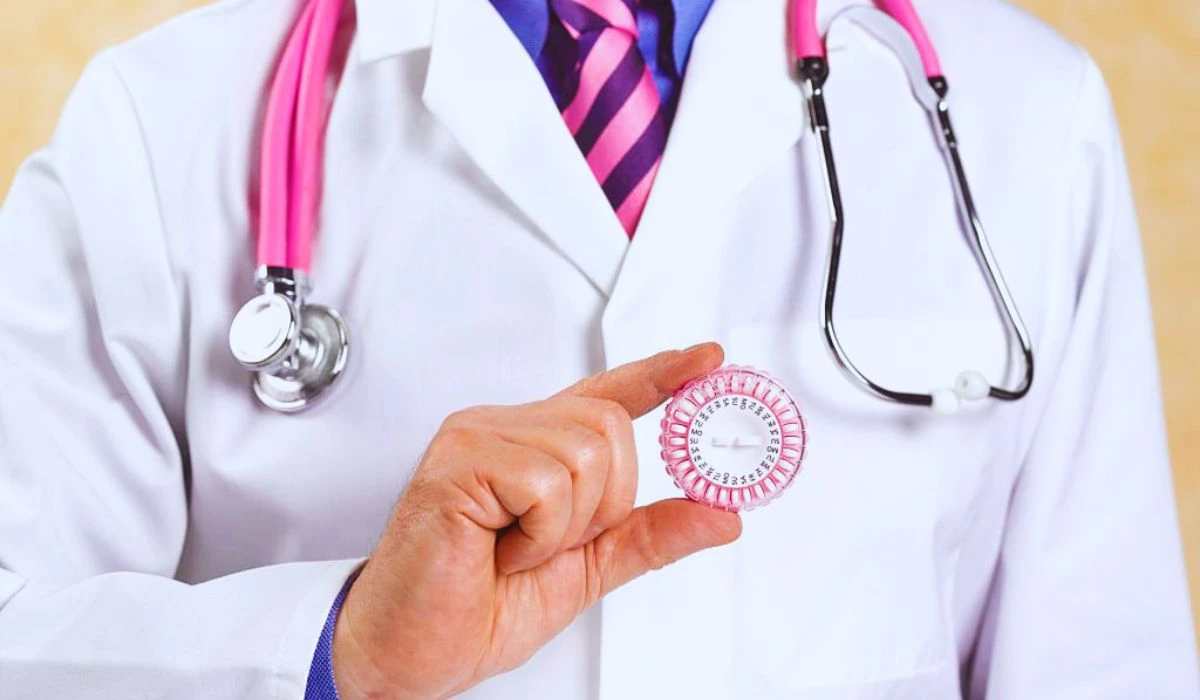Male menopause, or ‘andropause’, is a phase in a man’s life that often goes unnoticed. We’ll reveal the symptoms and causes of male menopause.
Men may be caught off guard by the physical and emotional changes. These signs include fatigue, decreased libido, depression, irritability, and hot flashes. Testosterone levels decline, and this can lead to weight gain and muscle loss – affecting quality of life.
Female menopause marks the end of fertility. Male menopause is more subtle but still significant. Don’t overlook or dismiss these symptoms – seek medical advice for support.
We must acknowledge the existence of male menopause and provide appropriate support systems. Open conversations about male reproductive health can lead to better understanding and improved quality of life.
Understanding Male Menopause
Male menopause, also known as andropause, is a natural decrease in testosterone levels as men age. This can cause physical and emotional shifts, such as fatigue, low libido, irritability, and depression.

The body makes less testosterone. This leads to muscle loss, increased body fat, and weaker bones. Emotionally, men may be more moody, and anxious, and have difficulty concentrating. These signs can lower their well-being.
Male menopause is not the same as female menopause. Women’s menstrual cycles stop due to hormonal changes. On the other hand, male menopause is a gradual reduction in testosterone. After age 30, testosterone levels go down about 1% each year.
Prevalence And Age Range
Male menopause, otherwise known as andropause, is common but often overlooked. It affects 30% of men aged 40-55 worldwide. As men age, testosterone naturally declines, leading to physical and psychological symptoms.
These vary in severity and duration. Lifestyle factors, like stress or diet, can also affect male menopause. It’s not a sign of weakness or aging, but a normal part of the process.
Causes Of Male Menopause
To understand the causes of male menopause, delve into the world of hormonal changes, lifestyle factors, and health conditions. Discover how these elements contribute to the phenomenon and gain insight into the underlying reasons behind the symptoms experienced during this stage of life.
🔶 Hormonal Changes
Hormonal shifts have a big impact on male menopause, also known as andropause. As men age, their hormones naturally dip, particularly testosterone. This can lead to various physical and emotional signs.
In addition to aging, medical conditions–like obesity, diabetes, and high blood pressure can also affect hormone production. Stress and bad lifestyle habits like lack of exercise or bad eating habits can contribute to hormone imbalances.
🔶 Lifestyle Factors
Diet, exercise, stress, and toxins can all impact male menopause. Eating foods packed with antioxidants, like fruits and veggies, can reduce oxidative stress and help hormone production. On the other hand, too many processed foods and sugars may cause inflammation and upset hormone levels.
Exercise is key for hormone regulation. Doing both cardiovascular and strength training can improve blood circulation and reduce stress, which helps hormones. Stress management is also important. Techniques like relaxation exercises, yoga, meditation, or therapy can help manage stress, preventing adrenal fatigue and imbalances in cortisol.
Environmental toxins from products like cleaning chemicals and pesticides can affect the endocrine system and male menopause. Limiting exposure to natural or organic products can lessen the impact.
🔶 Health Conditions
It’s essential to be aware of the other aspects linked to health conditions and male menopause. Certain medications, for instance, may interact with hormone levels and worsen symptoms. Furthermore, lifestyle choices and genetics may shape the intensity and onset of male menopause.
Knowing these health conditions is key for those going through or getting close to male menopause. Early recognition of potential risks and getting medical advice can improve the quality of life during this transitional phase.
Diagnosing Male Menopause
To assess male menopause symptoms accurately, hormonal testing and consultation with medical professionals are crucial. By understanding the different aspects of diagnosing male menopause, you can gain clarity on the symptoms and causes.

This section explores symptoms assessment, hormone testing, and consultation with medical professionals as solutions for diagnosing male menopause.
💠 Symptoms Assessment
If you experience certain signs, it may be an indication of male menopause. Watch out for:
- Change in mood
- Low energy
- Reduced muscle mass
- Sleeping troubles
- Diminished libido
- Hot flashes
💠 Hormone Testing
Diagnosing male menopause requires hormone testing to evaluate testosterone, FSH, and LH levels. Testing testosterone can indicate a decrease related to fatigue and decreased libido. FSH regulates sperm production. And LH stimulates the testes to produce testosterone. Other hormones such as estradiol and prolactin may be tested for a complete picture.
💠 Consultation With Medical Professionals
Consulting medical professionals are essential for diagnosing male menopause. They have the skills and know-how to identify signs and suggest treatments. Examinations and hormone tests are done to check for imbalances.
Furthermore, lifestyle behavior, mental health, and overall well-being are also considered. By consulting with specialists, those affected by male menopause can understand their condition better and get personalized care.
Treatment Options For Male Menopause
To effectively address the various aspects of treating male menopause, let’s explore potential solutions through lifestyle changes, hormone replacement therapy, and alternative therapies. By considering these sub-sections, we can gain insight into the diverse treatment options available to alleviate the symptoms and causes associated with male menopause.
✅ Lifestyle Changes
- Exercise regularly! It’s good for your overall well-being and can help you manage the physical and emotional changes that come with male menopause.
- Eat a healthy diet, too. Fruits, veggies, whole grains, lean proteins – all of these can help reduce symptoms.
- Manage stress with mindfulness exercises and hobbies. They can drastically improve your quality of life.
- Staying socially active and having a positive mindset are also great practices for leading a fulfilling life during male menopause.
✅ Hormone Replacement Therapy
HRT can address hormonal imbalances during male menopause. TRT, a form of HRT, specifically targets low testosterone levels. This therapy is delivered through various methods.
It’s important to note that HRT has potential risks and side effects. Deciding to undergo HRT should be done in consultation with a healthcare professional.

